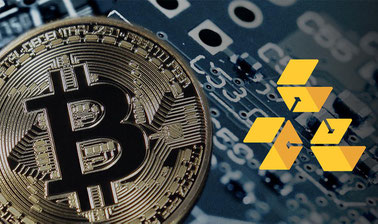Privacy Coins See Increase in Popularity as Security Becomes Priority
Privacy coins have seen a significant surge in popularity in recent years, driven by increasing concerns over digital security, surveillance, and the growing desire for financial privacy. In an era where personal data is constantly being collected and tracked, privacy coins offer users the ability to transact in a more anonymous and secure way. These coins, built with advanced cryptographic techniques, are designed to ensure that transactions remain private and untraceable, making them an appealing alternative to more traditional cryptocurrencies like Bitcoin and Ethereum, which, despite being decentralized, are still somewhat transparent in terms of transaction history. One of the most well-known privacy coins is Monero XMR, which employs a range of privacy features such as ring signatures, stealth addresses, and confidential transactions. These features make it nearly impossible for outside parties to trace the sender, receiver, or the amount of the transaction.

Similarly, Zcash ZEC offers a high degree of privacy through a technology called zk-SNARKs zero-knowledge succinct non-interactive arguments of knowledge, which enables shielded transactions that are fully private. Other privacy coins, like Dash and Pirate Chain, also use different forms of encryption and anonymity to protect user transactions, though Monero and Zcash remain the most prominent in the field. The rise of privacy coins can be attributed to the growing concerns over privacy breaches, government surveillance, and corporate data harvesting. As the digital world becomes more interconnected, bitcoin news the need for privacy has never been more critical. Hackers, data brokers, and even governments have access to vast amounts of personal data, making individuals more vulnerable to identity theft, fraud, and other forms of cybercrime. Privacy coins address these concerns by ensuring that transactions are shielded from prying eyes, allowing individuals to retain control over their financial information.
In addition to privacy concerns, the rise of censorship-resistant financial systems has contributed to the increasing popularity of privacy coins. In some countries, governments have placed restrictions on certain types of financial transactions, particularly in the context of cross-border payments or protests. Privacy coins provide a means for individuals to bypass such restrictions, ensuring that their financial activity remains free from government interference. This has made privacy coins a preferred option for people living in authoritarian regimes or those seeking to circumvent sanctions and censorship. Despite the advantages they offer, privacy coins face several challenges. Regulatory scrutiny is one of the most significant hurdles they encounter. Many governments and financial regulators have expressed concerns about the potential use of privacy coins for illicit activities such as money laundering, tax evasion, and financing terrorism. As a result, several exchanges have delisted privacy coins, and some countries have outright banned their use.